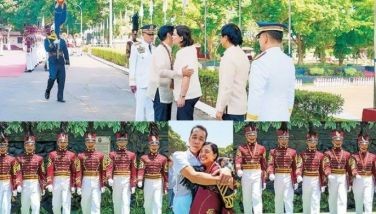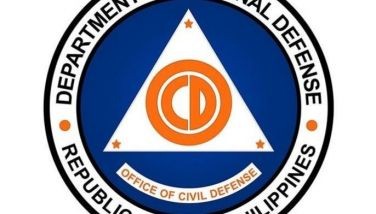HR victims file claim for Payanig property
Human rights victims of martial law are claiming an P18-billion, 17.9-hectare property in
Located at the intersection of Ortigas, Doña Julia Vargas and Meralco Avenues, the lot in question, the former site of the Payanig sa
Akbayan Rep. Loretta Ann Rosales, retired judge Priscilla Mijares and movie director Joel Lamangan filed a complaint-in-intervention before the Sandiganbayan to seek judicial action to acquire the government-held property in compliance with a
The complainants said that since the
Ilocos Norte Rep. Ferdinand “Bongbong” Marcos Jr. also filed a motion to intervene on
In his motion, Bongbong said his father bought the property from Ortigas & Co. Limited Partnership (OCLP) on
However, OCLP president Francisco Ortigas Jr. said Marcos coerced them into giving up their rights over the property for a “losing price” of P40 per square meter.
Lawyers of the Presidential Commission on Good Government and the Office of Solicitor General blocked the claim of Bongbong on grounds that the Sandiganbayan and the Supreme Court had already heard and ruled against Marcos’ ownership of the property.
The judgment against the Marcos estate is already in excess of $2.25 billion due to accrued interests, according to lawyers of the human rights victims.
The rights victims said the PCGG has not obtained a court order declaring the property as part of the Marcos wealth since businessman Jose Yao Campos, a Marcos associate, turned over the property to the government in 1986.
They said their “preferred right over those properties remain.”
In his deal with the PCGG,
The
In 1996, former First Lady Imelda Romualdez-Marcos filed a case in court to claim the prime lot.
Mrs. Marcos said her late husband acquired the property in a legitimate process, using his own money.
The PCGG objected to Mrs. Marcos’s motion, which resulted in the dismissal of the claim by the Sandiganbayan in a resolution issued on
Mrs. Marcos then filed an appeal before the Supreme Court.
The Supreme Court sustained the ruling of the Sandiganbayan in a decision on
Case now in US SC
In
It was learned that the Philippine government referred the case to the US High Court.
“Far from helping Filipino human rights victims, this administration spends limitless funds of the people to defeat their claims,” said Rod Domingo Jr., the Makati-based lawyer of the human rights victims.
“That money could have been spent feeding the poor of this nation. With far fewer resources, but God on our side, we expect to win in the US Supreme Court. We are disappointed that there will be another delay in distribution of the money to the Filipino victims.”
The Philippine government claims ownership of the $35 million at issue and asked the justices to take the case after two US courts awarded the stolen funds to victims of the Marcos regime.
The lawsuit stems from an account set up with a $2-million deposit by Marcos in 1972 at a brokerage in
In 2000, the firm Merrill Lynch went to court to determine who has the right to the money.
Asserting sovereign immunity, the Philippine government said the case could not proceed in US courts.
The willingness of lower
The ruling by the 9th US Circuit Court of Appeals in
The involvement of the lower US courts also “threatens to undermine” the ability of the United States to assert sovereign immunity in foreign courts in similar circumstances or to enforce its judgments abroad, the US solicitor general said.
Upholding the decision declaring the individual victims were entitled to the money, the 9th US Circuit Court of Appeals asked, “In good conscience, can we deny some small measure of relief to the... grievously injured” victims?
The 9,539 people claiming grave human rights abuses obtained a $2-billion judgment against the Marcos estate in a
The plaintiffs included Mariano Pimentel, who says he was held by the Philippine military for four years with no charges against him, then taken to a remote sugar cane field, buried up to his neck and left for dead. — With
- Latest
- Trending




























